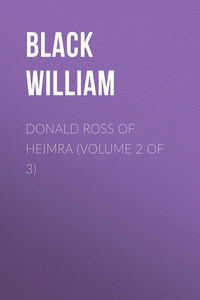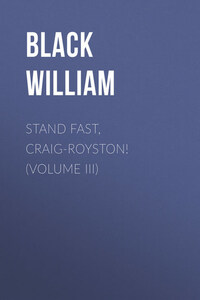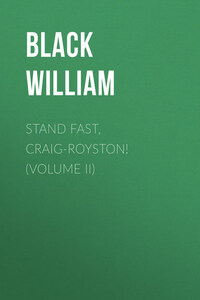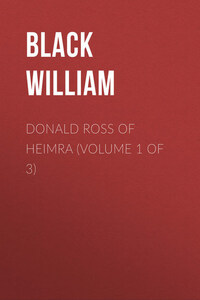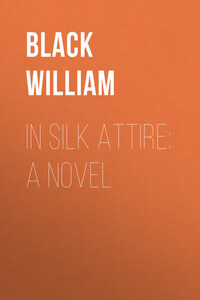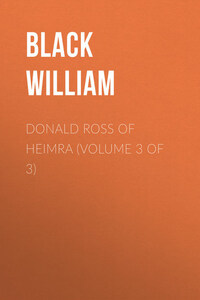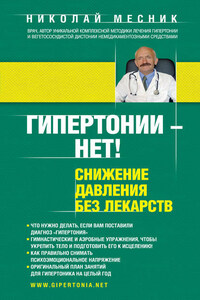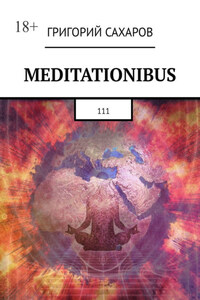Black night lay over sea and land; there was a low continuous murmur round the rocks and shores; and out here, at the end of the little wooden quay, two men were slowly pacing up and down in the dark. They were the serious-visaged Coinneach Breac and his taller and younger companion Calum-a-Bhata. The whereabouts of the village, across the bay, was revealed by a solitary light in one of the windows: no doubt the man who looked after the pier was enjoying the comfort of his own home as long as was possible, before coming down to make ready for the expected steamer.
The influence of the hour was upon Coinneach.
"I will tell you this, Calum," he was saying, in his native tongue – and speaking in rather a low tone, as if he did not wish to be overheard – "that there are many strange things happen to them that have to watch through the night; and they are never mentioned; for it is not safe to mention them. You do not know who may hear – perhaps some one at the back of your shoulder. And the speaking of such things is harmful. When I was telling you, Calum, about the Woman and her overtaking me as I was on the way home from Ru Gobhar, well, it all came over me again, and it was as if someone had me by the throat again, and I could not move, no, nor say some good words to get free from her and escape. But I will tell you of another strange thing now, that did not happen to me, so that I can talk of it, and without danger to anyone. It happened to my uncle, Angus Roy, that used to be out at Ardavore Lighthouse. Ah, well, now, if they would only speak, it is the lighthouse-men that could be telling you of strange things – ay, like the ringing of the fog-bell on clear nights, and the men looking at each other. Well, now, about my uncle, Calum; you know the men at the lighthouse have little occupation or amusement when they are not attending to the lamps; and sometimes, when it was getting dark, my uncle would go away down the iron ladder on to the rocks, and he would have a rod and a stout line and a big white fly, and he would go to where the water was deep, and maybe he would get a lythe or two for his supper. Well, one night, he came up the ladder, and when he came in he was nearly falling down on the floor, and he was all trembling, and his face was white. 'Duncan,' says he, 'I have been bitten by a dog.' 'You are dreaming, Angus,' said the other, 'for how could there be a dog on the Ardavore rocks?' 'See that,' says my uncle, and he was holding out his hand. And there, sure enough, was the mark of the dog's teeth. 'It was trying to pull me into the water,' says he, 'and when I escaped from it, it followed me, and when I got up the ladder, I looked down, and there it was, with its fore-paws on the first rung, and its eyes glaring on me. God help us all this night, Duncan,' – that is what my uncle was saying, 'if there is a dog on the island.' Now you know, Calum, there is no whisky or brandy allowed in the lighthouses, except for medicine; and Duncan MacEachran, he was the captain of the lighthouse, and he went to the chest and got a glass of brandy for my uncle, and says he, 'Drink that, Angus, and do not think any more of the dog, and in the morning we will search for the dog' – and so that was all for that night. Then the next day they searched and searched, and there was not any sign of a dog; for how could a dog get out to Ardavore, that is fourteen miles from the mainland? And another thing I must tell you, Calum, is that the marks of the dog's teeth on my uncle's hand they were almost away the next morning, and white. Very well. Duncan would think no more of it; and my uncle would think no more of it; and the marks would go away altogether. But now I will tell you what happened, and you will see whether it would not make a strong man afraid. As the evening came on, my uncle he was getting more and more uneasy; and he was looking at his hand; and the marks were becoming red now, instead of white. My uncle he could not sit still; and he could not do his work; what he said was, 'Duncan, it is the dog coming for me, to drag me into the water.' Then says Duncan, 'How can he come for you? How can he climb up the ladder? But when it is the same hour that you were down on the rocks last night, then I will look out and see what I can see.' And he did that. He opened the door, and looked down; and there was the dog, with its fore-paws on the first rung of the ladder, and its eyes glaring up. I can tell you, Calum, he did not wait long; he was himself like to fall down with fright; and when he got the door closed again, he put in all the iron stanchions as quickly as he could. And then he went and sate down. My uncle he was a little better by this time. 'The dog has gone away now,' says he. 'I know it. But to-morrow night it will be back – and the next night – and the next night – until it drags me into the water. What is the use of fighting against it, Duncan? I might as well go down, and be drowned now; for the dog is coming back for me.' But Duncan would not say that. He said 'I will contrive something. Perhaps it is not only drowning that is meant. And a man must not give up his life.' And Duncan MacEachran was right there, Calum," continued Coinneach, in an absent kind of way, "for you know what the proverb says – '
